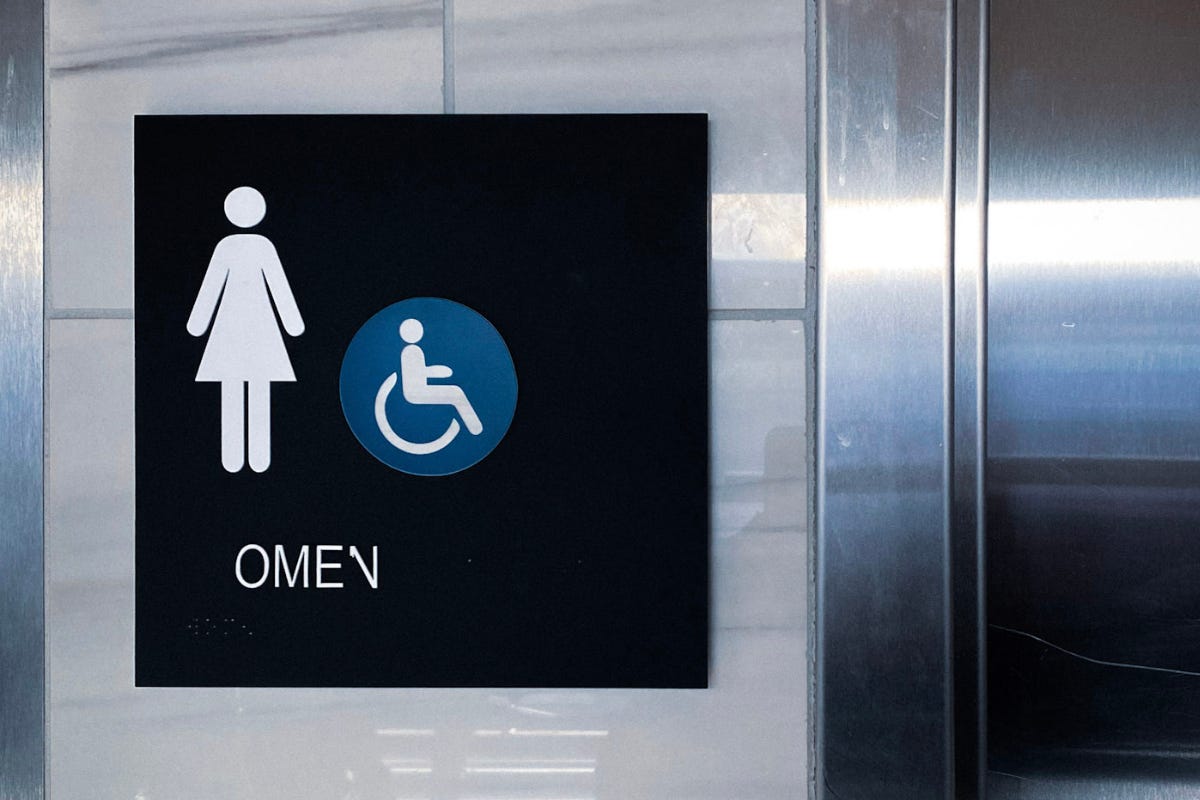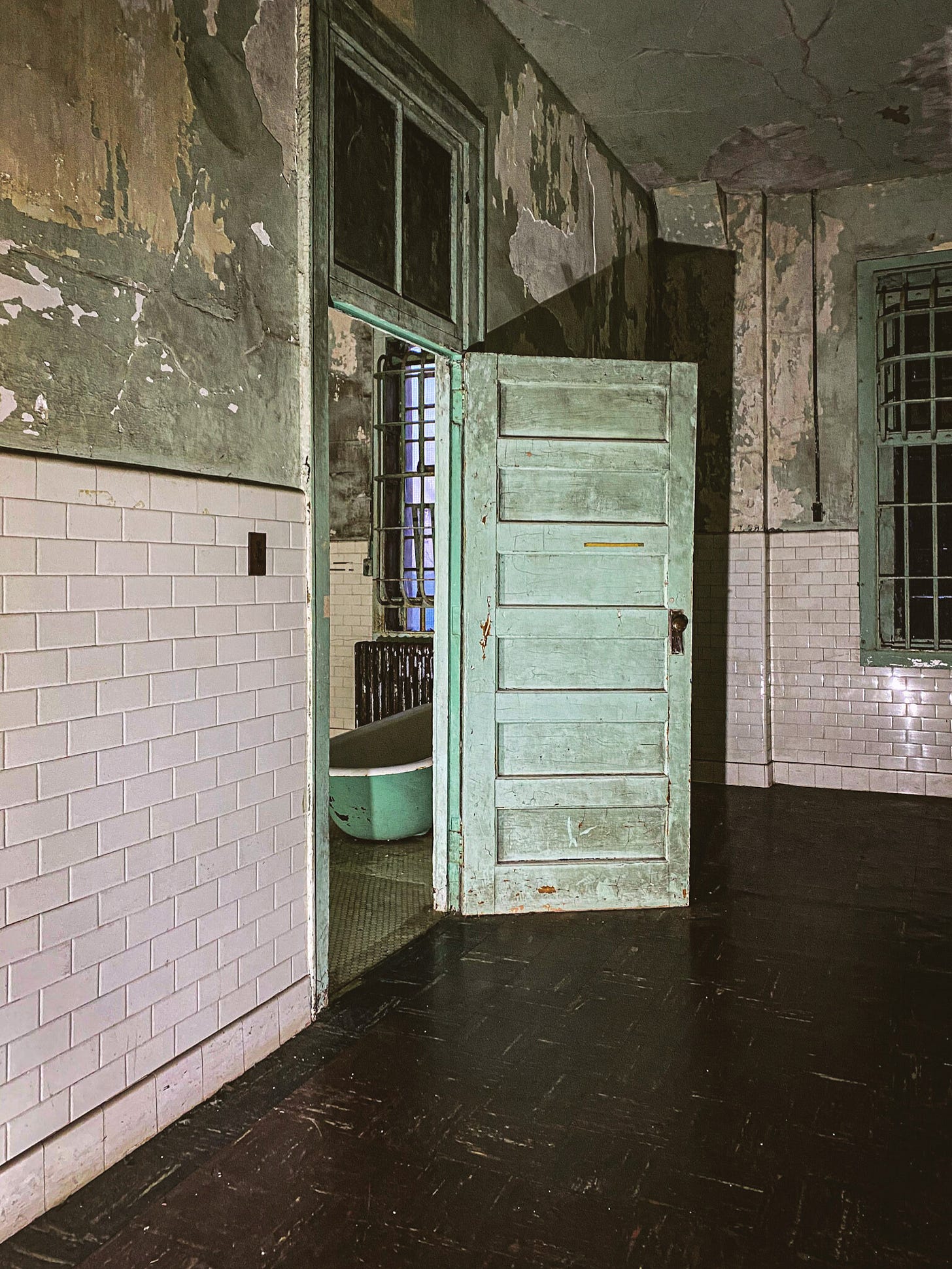What I Do in the Bathroom
How stepping away from constant input became my secret to peace, creativity, and feeling more connected to myself.
Now that I’ve captured your attention with the title, let’s talk.
Over the years, I've had more than a few folks—at work, at parties, in random life encounters—ask for my social media handles. It’s standard operating procedure, right? Most of the time, it's a quick exchange, maybe a shrug when I say I'm not on anything. We all move on.
But one encounter still makes me pause.
At the time, I wasn't on any platforms (a regular feature in my life), a fact that seemed to short-circuit my new acquaintance's brain. What followed was less of a chat and more of a bizarre interrogation.
It started simply enough. "What do you do during car rides? When you're lounging around the house?" But the questions kept flowing, to the point where I genuinely thought they were just fucking with me. They wanted to know how I got my news, how I kept tabs on people, how I even knew when a wedding or baby shower was happening.
Then, it dipped into full-on surreal territory when they asked what I did when I went to the bathroom. Seriously. No joke.
Utterly baffled, I realized the real answer wasn’t about what I was doing in the absence of social media, but about what I was feeling. When they finally paused for breath, I just said, “To be honest, I’ve never put this much thought into it (I mean really this is a lot of thought). I just do the things that make me feel good, and social media isn’t one of them.”
Their response? A blank stare, followed by the statement that lit the fuse for this entire post: “What the hell does that even mean?”
I've spent years thinking about that interaction – a thought that has, ironically, occupied many of my bathroom breaks since. This is my attempt to finally answer the question: What do I do in the bathroom without my phone? And more importantly, what do I do with the rest of my life when I'm not perpetually "on"?
Let’s get one thing straight. I existed before the internet lived in our pockets. As a profound introvert (my Meyers-Briggs score is 99.2% introverted, for scale), my life has been happily spent among books, journals, art projects, and simply…being with myself. So, when social media and online chats first appeared (shoutout to my fellow AOL alumni), I participated. But it’s always been a messy, complicated relationship.
The reason, at its core, is simple. I get profoundly burned out.
Unlike an in-person conversation, social media is a relentless, non-stop barrage. Images, voices, TMI, marketing disguised as life advice, and blatant misinformation create a constant emotional overload. It's a never-ending feed, and frankly, it's hella loud. In this hyper-engineered space where every pixel screams for a sliver of my attention—because my attention is the product being sold—I find myself in a constant state of being “on.” For a brain wired like mine, this isn't just unpleasant; it's stressful. It's like trying to think clearly in a crowded, echoing train station with a young child asking if we’re there yet, 24/7.
And this isn’t just some weird Angie quirk. It’s a well-documented psychological phenomenon sociologists call “context collapse.”
In real life, we effortlessly present slightly different versions of ourselves to different groups. For example, our close friends, our family, our colleagues. Seriously, watch your kid when their friends come over; a completely different human materializes in your living room. On social media, all those separate audiences collapse into one giant, amorphous blob. We’re left performing for everyone, all at once. This constant, subconscious self-monitoring is utterly exhausting and creates a jarring disconnect between our online persona and our actual self.
Ultimately, I found that I liked people—and myself—much better when I was getting (and giving) the real, un-collapsed version.

Sitting here now, I realize the more this acquaintance grilled me, the more I understood that social media is often engineered to make me profoundly uncomfortable with the very state I cherish most. And that is boredom.
While they were boggled by the idea of existing without a constant stream of digital input, I feel perpetually exhausted from the sheer lack of regular, beautiful, unstructured boredom.
In fact, every single morning, the first thing I do is nothing. For at least five minutes, though I've been known to stretch that to an hour. I just lie in bed—no phone, no TV, no music—and I simply stare. At the ceiling, out the window, at the dogs piled on the bed. I let my mind drift, ponder a forgotten dream, decipher a distant birdsong, and just listen to my own breathing.
Far from being empty, this "boredom" is a rich, creative space. It's where my brain untangles knots, where anxieties soften, and where my best (and worst) ideas are born. This isn’t just an introvert quirk; neuroscientists have found that boredom is crucial for creativity and problem-solving. When our brains aren't force-fed external stimuli, they switch to an internal "default mode network," which is critical for making new connections, consolidating memories, and processing our own thoughts without interruption.
For me, this space of boredom is profoundly peaceful. It's where I can manage my feelings and decide where to put my energy for the day—at least, after the second cup of coffee hits my veins.
Let me be clear – this is not a judgment on anyone's habits. I recognize that for many, these platforms are a vital lifeline—a way to connect with family across oceans, find community in niche hobbies, or even build a small business. I truly celebrate that. My choice isn't a rejection of connection itself, but an admission that the specific architecture of that connection just isn't built for a brain like mine.
This is simply an acknowledgment of the wide, beautiful spectrum we all occupy. If you feel easily overwhelmed by socials, you are not alone. If you're a social media rockstar who thrives on constant connection, you are not alone. And for everyone in the vast, messy middle—you’re definitely not alone.
So, how do I get news or hear about baby showers? It’s simpler than you’d think. I get my news from a few trusted sources I check deliberately (turning off all others), not from an endless, anxiety-inducing scroll. And as for events? The people who are truly in my life have my phone number. The important invitations always find their way. I've traded a thousand weak ties for a stronger connection with the people in my actual, un-collapsed world.
And, I have gone on to discover that feeling of overwhelm isn't just about social media. It extends to TV, movies, and magazines, too – a relentlessly loud plotline I can’t escape, a constant whisper telling me who I need to be. The sheer pace of it all is just too much for me.
I’ve come to conclude that maybe I’m built more like a sloth, meandering my way through a world that sprints. Or maybe I just need a different kind of context when peopling – the kind that gets lost in digital translation. You can't see the twinkle in someone's eye that signals a joke or read the subtle body language that gives words their true weight. It’s a strange paradox. We’re flooded with visual input, yet starved for the human clues we actually need.
This is where the exhaustion from "context collapse" really hits home. And it's not just a feeling; it's a biological reality. The British anthropologist Robin Dunbar proposed that the human brain can only comfortably maintain a stable social network of about 150 people (famously known as Dunbar's number). Our wiring simply isn't designed for the thousands of weak ties and constant social surveillance social media demands. Is it any wonder so many of us feel burned out?

Just as that person pondered how I could use the restroom without my phone, I've often wondered how others manage the constant feeling of being "on." And, I’ll admit, I will take a book I can’t put down into the loo with me. I imagine the feeling is similar, but with a book, the visuals are ones I’ve created entirely in my own mind – for me that is a quiet, private world that doesn't overwhelm my senses or demand a response.
So, what's the takeaway from this diatribe? Maybe it's not about deleting every app. Maybe it's just about finding five minutes of unstructured boredom in any given morning. Maybe it's asking which version of ourselves do we want to show up online today. Or maybe it's just leaving the phone behind when we go to the bathroom and seeing what thoughts show up in its place. Who knows…we might all just be surprised by the quiet world we find waiting.
plant a little chaos in your inox











